The question of why do dogs howl is one that humans have been asking for quite some time.
Most people associate a dog howling with wolves singing in unison to a full moon. The real reason for howling, however, has much less to do with a full moon and much more to do with communication.

Being nocturnal, wolves do much of their socializing, hunting and activity from dusk to dawn and utilize howling to carry their communication long distances to the other members of the pack. Wolf packs can have territories that range from 50 miles and beyond, often depending on how much prey is available within the confines of their range. The lesser the prey, the larger the territory. An adult wolf can easily cover over 25 miles a day when hunting and may have many miles between them and the rest of the members of the pack. Howling bridges this distance perfectly, as a wolf’s howl can carry up to 10 miles depending on if they are in the open or a wooded area.

A wolf’s howl is known as a vocalization, since it is specifically used to communicate.
It can convey many things, including:
- location and status to the pack
- warnings to other wolves or predators who might be traversing near howling wolf’s territory
- put out the vibe to potential mates during the right season
A wolf’s howl can be solitary, or joined by members of their pack to form a chorus, in which the wolves instinctually howl at different pitches to form a harmony.
This is often done to ward off rivals and create a chorus that magnifies the might of the pack, but some studies have suggested that wolves also do it just for the camaraderie and fun!
So why does my domesticated dog howl?
Why does your Poodle howl when a siren goes off? Why does your Labrador howl when you leave for work?
Domesticated canines have many known reasons for why they howl, and some are related to their ancestry. Your dog likely views you and your family as members of their pack and as such, is trying to communicate with you when they howl. Often, reasons for howling can fall into a few likely communication patterns:

-
Dogs Howl when Announcing Territory and Conveying Warnings
Perhaps your pup howls when picking up the scent or sight of other dogs and animals. This is simply your dog alerting the other members of their pack (you and your family) to the presence of another animal encroaching on your territory. It’s also a warning to that animal that the territory is protected and that their presence has been noticed. If you reside in a community with other dog owners, one dog howling can also cause other dogs in the neighborhood to join in, creating a chorus of voices which are all trying to announce their status and position in the territory.
-
Responding to Sound
Be it the shrill sound of a child’s toy, a fire alarm or a siren, there are a lot of sounds that seem to set off the howling instinct in domesticated dogs. This can be done as a response, similar again to the chorus that forms when wolves and dogs feel the need to join in and express their territory and location. It can also be a warning response to a sound they find potentially threatening. With domesticated dogs experiencing a much wider variety of man-made sounds than the average wolf of the tundra, it’s easy to understand why your pup may respond to noises in their daily lives; such as howling a warning to the vacuum that it had better watch its back.

-
Expression of Emotions
Dogs convey many emotions through howling, such as expressing a desire for companionship, feeling anxiety, seeking your attention and more. It could be that your dog howls when a family member leaves home. This is often an effort to signal their location to help the family member find their way home. It may be that your dog is experiencing fear or anxiety, or even just expressing their desire for comfort and companionship. Occasionally dogs may also howl to express physical discomfort. When this is the case, however, there are often other signs in their behavior that indicate this more effectively.

There are many reasons your dog may be howling and channeling their inner wolf, and most often it’s an occasional occurrence that is just part of a dog’s instinct or learned behavior.
If it’s a behavior that is developing suddenly without a clear reason it may be a concern. When this happens, you can discuss the patterns with your veterinarian to better understand your canine companion.

Visit Dr. Jeff Werber’s Instagram account (@werbs_dvm) to view and submit questions and answers on weekly AMAs – or call and leave a voicemail at 424-835-0576. Your call will be returned posthaste.
For emergencies, download Dr. Jeff Werber’s app Airvet, a video-chat option for veterinary needs at any time of day or night!
